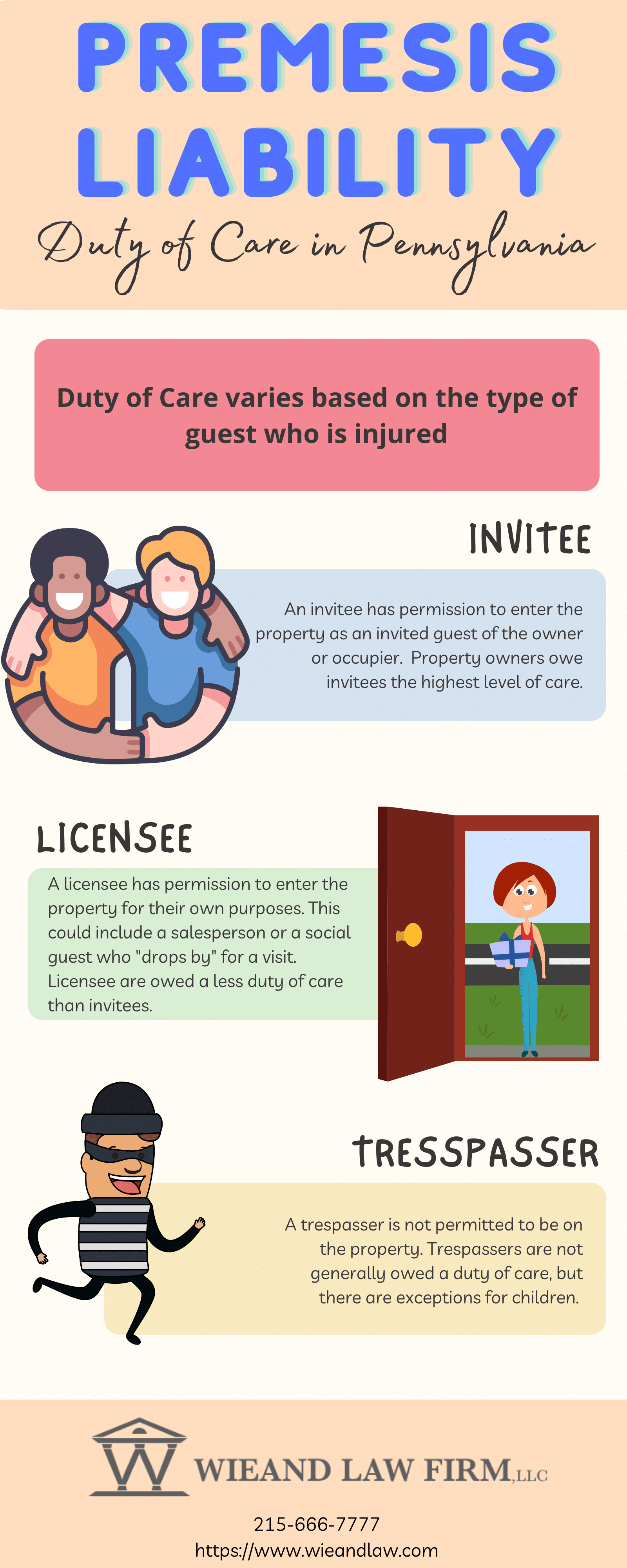 According to the personal injury lawyers at the Wieand Law Firm, a property owner generally does not have liability for trespassers on their property. Property owners typically cannot be expected to anticipate trespassers and thereby warn them about safety hazards; therefore, property owners are not held to a duty of care for trespassers (with some exceptions for children). The personal injury lawyers at our firm understand that property owners’ duty of care vary based on the type of guest. A recent case highlights that liability may depend on whether or not a visitor is defined as a trespasser.
According to the personal injury lawyers at the Wieand Law Firm, a property owner generally does not have liability for trespassers on their property. Property owners typically cannot be expected to anticipate trespassers and thereby warn them about safety hazards; therefore, property owners are not held to a duty of care for trespassers (with some exceptions for children). The personal injury lawyers at our firm understand that property owners’ duty of care vary based on the type of guest. A recent case highlights that liability may depend on whether or not a visitor is defined as a trespasser.
A recent personal injury case that attempted to use the trespasser defense failed to convince a jury, who awarded the plaintiff $900,000 in a personal injury case against the property owners.
In the case of Mulero vs. Revere Crossing Management, the plaintiff appeared at her ex-boyfriend’s apartment complex. The defense claimed that she was not an invited guest and contended that she was a trespasser at the time she allegedly fell, rendering her unable to sue. According to the plaintiff’s attorney, the defendants did not dispute that the property was unsafe, they only contended that the plaintiff should not have been near the staircase.
The plaintiff’s attorney claimed apartment complex location in which the plaintiff sustained her fall presented a hazard to guests because it did not have guardrails or adequate lighting. Additionally, the plaintiff claimed that the defendants were aware of the conditions for an extended time and failed to take action to repair the conditions.
In premises liability cases, there are several categories of people who visit a premises that is owned by someone else. These categories include invitees, licensees, and trespassers.
An invitee is someone who the premises owner or occupier, induces or leads to enter the premises by either expressed or implied invitation. This would include customers in a store, or guests of tenants in an apartment complex.
A licensee is permitted to be on the premises for their own benefit, with the permission of the landowner or occupier. The property owner owes a higher duty of care to a licensee than a trespasser. A social guest visiting a friend who stops by unannounced may be considered a licensee.
A trespasser enters the property without permission of the property owner or occupier. While property owners generally do not have a duty of care for a trespasser, they must refrain from willful or wanton conduct.
Ultimately, the jury determined that the “exes” relationship between the tenant and the plaintiff did not define the plaintiff as a trespasser. The jury determined that the defendant’s negligence caused Mulero’s injury, which included a femur fracture that required several surgeries and treatments. The jury found that Mulero was also negligent, but that it was not the cause of her injury.
If you have been injured on someone else’s property, reach out to a personal injury lawyer who is familiar with premises liability law. The personal injury attorneys at the Wieand Law Firm, LLC have years of experience in obtaining compensation for injured victims in these types of cases. Call 215-666-7777 to speak directly with a lawyer about your legal options. We offer a free consultation, and we never earn any fees unless we win money for you.